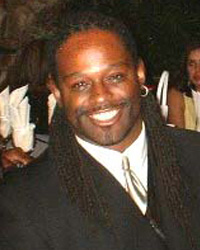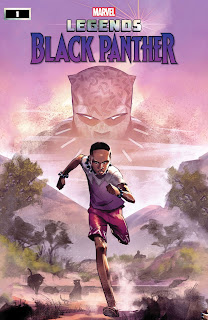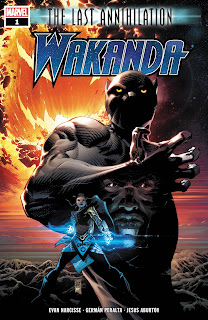deerstalker
We used our Accio spell to summon the best Harry Potter baby shower ideas for your future witch, wizard, or Muggle!

Diving into the world of Harry Potter is a magical experience for every wizard, witch, and Muggle. Creating a baby shower that embodies the beloved book and film series is incredibly exciting! From all the symbols, spells, characters, and themes within Harry Potter, your guests will feel like they just waltz right onto Platform 9 ¾ headed right to Hogwarts!
Geek Baby Clothes has curated the perfect list of Harry Potter Baby Shower Ideas, from decorations and invitations to gift and party ideas, to help you have a magical welcoming celebration for your future wizard, witch, or Muggle!
Before jumping into baby shower ideas, why not check out this awesome list of Harry Potter Baby Clothes and Onesies that are also wonderful ideas for baby shower gifts!
Baby Shower Decorations 
A Baby Wizard is Headed Our Way Banner Set
Preparation for the grand celebration for the baby wizard should be joyous! This banner has all the famous symbols of Harry Potter with the words “A Baby Wizard is Headed Our Way!” This banner even comes with temporary tattoos for maximum celebration.
Glitter Harry Potter themed Cupcake Toppers
Wizards and Muggles of all ages will be famished from all the socializing and Harry Potter baby shower fun, so why not have the sweetest treats on the trolly decorated with the theme too? These Harry Potter glitter cupcake toppers would even delight a Malfoy!
No party is complete without balloons! With a Harry Potter character balloon, two round balloons featuring multiple Harry Potter characters, and two blue stars, these balloons will create the perfect spell for your wizardly celebration!
The four Houses of Hogwarts signify the classic elements and states of matter. Gryffindor -Fire and Plasma, Slytherin – Water and Liquid, Ravenclaw – Air and Gas, and Hufflepuff- Earth and Solid. The houses also value specific qualities such as courage, ambition, intelligence, and loyalty. These 5 banners represent the houses and make pretty awesome decorations as well!
Platform 9 ¾ Brick Wall Curtain
Every Harry Potter fan knows the iconic Platform 9 ¾ at King’s Cross Station, and this curtain is perfect to transform any room into the railway to Hogwarts.
Wizard and Witches Celebration Streamers
Quidditch, Sorting Hat, and Harry—Oh my! There are many symbols in Harry Potter and these streamers use them as dangling decorations, like the Deathly Hallows, the House Cup, “Wizard School” signs, and more!
Perfect for party favor bags or even just decorations, these Hogwarts House Uniform gift bags of Gryffindor, Slytherin, Ravenclaw, and Hufflepuff are perfect for your Harry Potter baby shower!
This Hogwarts tablecloth is perfect for decorating a table full of presents and treats for any Harry Potter-themed baby shower party. With the symbols of the 4 Hogwarts Houses, every future witch or wizard will be fully celebrated!
Baby Shower Invitations 
Quaint and delightful, these darling Snowy Owl Invitations are a great way to invite your guests to your baby shower. Resembling Hedwig, the snowy owl, these will surely bring a smile to everyone you invite. This set comes with 10 cards and 10 envelopes.
Muggle Baby Shower Editable Invitations
Perhaps your baby isn’t a witch or a wizard but a Muggle, which is certainly okay! Manage some mischief with this gorgeous editable template, available as a digital download.
Wizard Baby Shower Invitation Bundle
Whether you are expecting a little wizard or a tiny witch (or perhaps both!), this invitation will be perfect for the party! “A Magical Bundle is On the Way” is presented with a beautiful owl. These invitations are for digital download and come with “Thank You” cards, “Diaper Raffle” cards, “Free Dobby—Bring a Pair of Socks for the Baby” cards, and “Books for Baby” cards.
Magical Celebration Invitation Bundle
Showcasing the bountiful excitement for your future little Harry Potter fan will be expressed with these gorgeous invitations for the magical occasion. These invitations come with “Diaper Raffle” cards, “Books for Baby” cards, and “Wishes for a Charmed Life” cards as a digital download.
Baby Shower Gift Ideas 
Baby Monthly Milestones Blanket
Wizards-in-training indeed grow up incredibly fast, so why not give the gift of a baby milestone blanket? Perfect for photoshoots for each month while creating memories of growing up! Comes with a blanket, star wreath counter, black frame glasses, and a magic wand for the full experience.
Soft and Cuddly Harry Potter Blanket
This soft plush blanket is perfect for every Harry Potter fan, new and old alike! A wonderful addition for the nursery or cuddling up and watching Goblet of Fire again.
If you have ever dreamed of having a Harry Potter-themed nursery then check out this excellent, curated list of Harry Potter Baby Nursery Ideas.
Harry Potter Swaddle Blanket Set
Extreme cuddles await with this set of 4 Harry Potter-themed swaddle blankets. Fantastic for every baby wizard or witch to feel safe and secure.
Mealtime and drool need ultimate protection, which these 5 Harry Potter bibs provide. Who can resist “Snuggle this Muggle” and all the other fun designs?
These soft burp cloths are a must-have for every parent of a baby wizard, witch, or muggle. Choose a fun Harry Potter-themed phrase, like “She Who Must Be Burped” or “Expecto Vomitus!” and personalize it with your lil’ one’s name, your choice of thread colors, and more!
Baby Wizard Sensory Tag Blanket
Having items to promote a baby’s learning of senses is a necessity. With this sensory tag blanket, tiny wizards will be utilizing their senses to provide cognitive, social, and emotional development as well as having a wonderful security blanket.
While on the road, it’s important to be safe. This Baby on Board Decal is perfect for cars or broomsticks alike. There are a few choices to choose from such as Baby Wizard, Baby Witch, or Baby Muggle.
Beautifully handcrafted with soft velvet yarn, this Dobby crochet plush doll is perfect for every Harry Potter fan who adores the delightful house elf.
Harry Potter Cartoon Burp Cloth
This soft and colorful burp cloth is perfect for baby’s teething time and surprising spit-ups. With a flannel pattern of the Hogwarts animals on one side and a soft pattern on the other, it is quite a charming design for any magical family.
Harry Potter Nursery Alphabet Poster
This handmade Harry Potter Alphabet poster is a perfect gift for a baby shower or a decoration for a nursery. Help future Harry Potter fans learn their ABCs from Albus Dumbledore all the way to Zonko’s Joke Shop. Comes in a variety of sizes.
Keeping memories of your baby’s developments and “firsts” are important, and these baby milestone cards are perfect for every new family to have! Comes with 30 different cards with journaling space, so your Harry Potter-loving family will remember all the important times.
Baby Shower Party Ideas 
Sorting your guests into their respective Hogwarts House can be an exciting way to start off the baby shower festivities. There are many fun sorting hat quizzes that can be taken, or you can pick a random house name from the sorting hat itself. Whether you’re a Gryffindor, Slytherin, Ravenclaw, or a Hufflepuff—like myself—your guests will truly feel like they are in the wizarding world of Hogwarts with this incredible looking sorting hat on their heads. Or, for the more budgetary minded, try this sorting hat as an alternative.
This free tutorial from Holly’s Home shows how to easily create Wizard wands from wooden skewers, paint, and glue. It’s a fun craft that can also be taken home by your guests to remember the baby shower!
Looking for some recipes to immerse your guests even more? Learn how to make butterbeer and other recipes, or, go here for a fun and easy tutorial about how to make Harry Potter chocolate frogs (spell to animate frogs not included).
Wizard Party Baby Shower Games
These 12 Harry Potter-themed baby shower games are a perfect collection of activities to do with guests. From Baby Predictions, Baby Bingo, and many more, there will be plenty of socializing and fun with these party games.
The post Harry Potter Baby Shower Ideas appeared first on Geek Baby Clothes.



























































